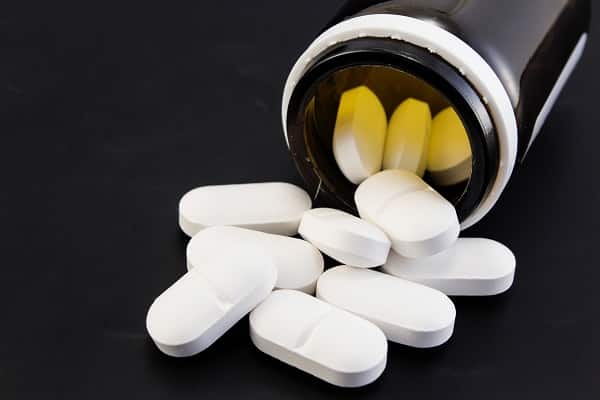In an era where medical advances are frequent, the alarming rise of antibiotic resistance stands as a stark counterpoint, challenging the effectiveness of some of the most critical tools in the medical arsenal. Antibiotics once hailed as wonder drugs, face a formidable opponent in resistant bacteria. This phenomenon poses a significant threat to public health and undermines decades of medical progress. This article aims to shed light on the intricacies of antibiotic resistance, exploring its origins, impacts, and the collaborative efforts required to mitigate its advance.
Contents
Causes of the Rise in Antibiotic Resistance

Antibiotic resistance, a natural evolutionary response of bacteria, has been significantly accelerated by human actions. The primary contributor is the overprescription and misuse of antibiotics in healthcare settings. Doctors often prescribe antibiotics for viral infections, against which these drugs are ineffective, leading to unnecessary exposure bacteria to these drugs. Similarly, patients not completing their prescribed antibiotic courses contribute to the development of resistance, as bacteria are exposed to insufficient drug levels, allowing them to adapt.
In the agricultural sector, livestock routinely uses antibiotics not just for treating infections but also as a preventive measure and growth enhancer. This widespread use in animals contributes to developing resistant strains, which can be transmitted to humans through direct contact or consumption of animal products. Additionally, the environmental spread of antibiotics through waste and runoff further exacerbates the problem, creating reservoirs of resistance in the natural environment.
Impact on Healthcare

The rise in antibiotic resistance has profound implications for healthcare systems globally. Infections that were once easily treatable with antibiotics are becoming increasingly difficult to manage. This leads to longer hospital stays, higher medical costs, and an increased burden on healthcare resources. In some cases, infections become untreatable, resulting in higher mortality rates. This is particularly alarming in the case of common bacterial infections, which could turn into deadly threats if current trends continue.
Hospitals are especially vulnerable to outbreaks of resistant infections. In healthcare settings, where antibiotics are high and immune-compromised patients are common, resistant bacteria can spread rapidly. This situation is exacerbated by the dwindling arsenal of effective antibiotics, as drug-resistant bacteria, like MRSA and VRSA, continue to outpace the development of new medications. The impact is not limited to treating infections; it also poses a significant risk to major surgeries and other medical procedures that rely on effective antibiotics for infection prevention.
Global Health Implications

Antibiotic resistance is a global health emergency, transcending national borders and impacting public health worldwide. The ease of international travel and global trade facilitates the rapid spread of resistant strains, turning local outbreaks into global health threats. This worldwide spread is particularly concerning as it complicates efforts to manage and control infectious diseases, often leading to large-scale public health crises.
In developing countries, where healthcare infrastructure is often less robust, the impact of antibiotic resistance is especially severe. These regions, already grappling with limited resources, are ill-equipped to handle the additional burden of resistant infections. The situation is further complicated by the lack of access to quality healthcare and medications, often leading to the misuse of antibiotics. This not only affects individual countries but also has wider implications for global health initiatives, such as efforts to control tuberculosis, malaria, and HIV/AIDS, where the effectiveness of antibiotics plays a crucial role.
Prevention and Control Measures

To tackle the issue of antibiotic resistance, a multifaceted approach is required. On the healthcare front, there is a pressing need for more judicious use of antibiotics. This involves prescribing antibiotics only when necessary and ensuring patients understand the importance of completing their prescribed courses. Hospitals and healthcare facilities must implement stringent infection control measures to prevent the spread of resistant bacteria. This includes regular hand washing, sterilization of medical equipment, and isolation of patients with resistant infections.
Public health initiatives are equally important in this battle. Vaccination is crucial in reducing the need for antibiotics by preventing bacterial infections. Public awareness campaigns are vital in educating the public about the dangers of antibiotic misuse and the importance of following medical guidance. Additionally, efforts to develop and implement rapid diagnostic tests can aid inappropriately using antibiotics, ensuring they are used only when necessary.
The Future of Antibiotics

Looking forward, the future of antibiotics hinges on the development of new drugs and alternative treatment methods. The scientific community is actively engaged in research to discover new antibiotics that can overcome existing resistances. However, this process is slow and challenging, with few new antibiotics making it to the market. There is a growing interest in alternative approaches such as bacteriophage therapy, which uses viruses to target bacteria, and the exploration of natural compounds with antimicrobial properties.
Global strategies that incentivize the research and development of new antibiotics are critical. These strategies might include funding, streamlined regulatory processes, and extended patent protections. Additionally, international agreements and policies are necessary to regulate the use of antibiotics worldwide, ensuring a coordinated response to this global threat. This includes efforts to improve surveillance of antibiotic use and resistance patterns, facilitating the sharing of data and best practices among nations.
Personal Responsibility and Action

The fight against antibiotic resistance is not just limited to healthcare professionals and policymakers; it also requires active participation from individuals. Every person can contribute to this battle by using antibiotics responsibly. This means taking antibiotics only when prescribed by a healthcare professional, strictly adhering to the prescribed course, avoiding self-medication, and resisting the urge to pressure doctors for antibiotics when unnecessary.
Moreover, individuals can help prevent infections in the first place by maintaining good hygiene practices, such as regular hand washing, safe food handling, and staying up to date with vaccinations. Educating oneself and others about the risks of antibiotic resistance and advocating for responsible use of antibiotics in their communities are also important steps. Consumers can also influence the market by choosing products from sources that use antibiotics responsibly, particularly in the context of meat and dairy products.
The Bottom Line
In conclusion, the alarming rise of antibiotic resistance is a multifaceted problem requiring a comprehensive and collaborative approach. It challenges the very foundation of modern medicine and poses a grave threat to public health worldwide. Addressing this issue calls for a concerted effort from healthcare professionals, policymakers, scientists, and individuals alike. The tide of antibiotic resistance can be stemmed through judicious use of antibiotics, robust public health initiatives, innovative research, and international cooperation. Each individual must recognize their role in this fight and take active steps toward preserving the efficacy of these vital medications. The future of healthcare and the effectiveness of antibiotics in combating infectious diseases hinges on our collective actions today.


